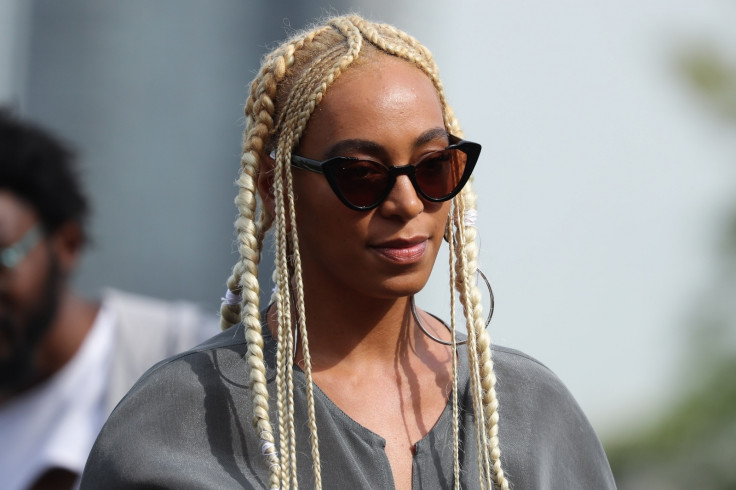Evening Standard apologies for cropping Solange Knowles' braids in cover photo
The Evening Standard faced accusations of racism after digitally altering a photograph of singer Solange Knowles.
The London Evening Standard has apologised to Solange Knowles after causing offence for airbrushing her braids in a photo on the cover of its magazine.
The newspaper faced accusations of racism for digitally altering the image, with fans of the singer claiming that removing her crown of braids was an attack on her cultural identity.
Offering their "unreserved apologies," the ES explained the picture of Solange was changed for "layout purposes".
In a statement, the Standard said: "We were delighted to have the chance to interview the wonderful Solange Knowles and photograph her for this week's edition of ES.
"It is therefore a matter of great regret that the finished cover artwork caused concern and offence. The decision to amend the photograph was taken for layout purposes, but plainly we made the wrong call and we have offered our unreserved apologies to Solange."
In the ES interview Solange specifically discusses the cultural significance of braiding hair for black women, describing it as an art form and an important part of her cultural legacy.
" It is an act of beauty, an act of convenience and an act of tradition — it is 'its own art form," she told the magazine.

Following the publication of the cropped image, Solange communicated her ire by posting the original image on Instagram with the caption "dtmh" – an abbreviation of Don't Touch My Hair, which is a track which features on her 2016 album A Seat at the Table.
Amid the furore surrounding the photograph, the journalist who interviewed Knowles has "publicly disowned" the piece, claiming that her interview was distorted.
Angelica Bastien tweeted: "I am publicly disowning the Solange piece London Evening Standard published today. The entire piece was a fiasco despite my efforts.
"I told my editors to take my name off of the byline because they distorted my work and reporting in ways that made me very uncomfortable, which was heartbreaking given how much work I put into it and my interest in Solange as an artist."
I am publicly disowning the Solange piece London Evening Standard published today. The entire piece was a fiasco despite my efforts.
— Angelica Jade (@angelicabastien) 19 October 2017






















